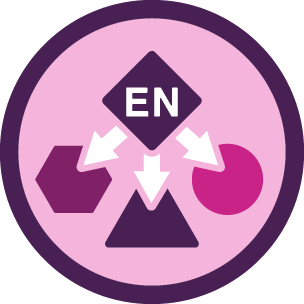Future Perfect Passive & Hypothetical situations
Future Perfect Passive
Discussing a future project
Third Conditional and a Review of Other Conditionals
Sequence of events
Hypothetical situations with Past Simple
Hypothetical situations with Past Perfect
Quiz: Future Perfect Passive & Hypothetical situations
Formal and informal English
One should always do one's best
Giving reasons with since
No matter
Should as a conditional
Monologue "New Job"
Quiz: Formal and informal English
Reports, beliefs and comments
Reporting beliefs and impersonal comments
Imminent events
Adding information
Subject-verb inversion
Roleplay: Platzi News
Quiz: Reports, beliefs and comments
Cleft Sentences
Hypothetical situations using ‘only if’
Cleft sentences in Past, Present and, Future
Questions using complement clauses with is it/was it
Quiz: Cleft Sentences
Course Outcomes
Conclusion
Você não tem acesso a esta aula
Continue aprendendo! Junte-se e comece a impulsionar sua carreira
Se você já tem uma conta,
Adding information
14/21Agrega información a tus oraciones para sonar más formal y darle más profundidad a lo que tratas de transmitir.
Usar expresiones para añadir información
Para agregar más información en una oración, puedes hacer uso de la fórmula: “not only … but also”, donde la oración se divide en dos partes que mantienen una misma estructura.
- He is my brother and my best friend.
- He is not only my brother but also my best friend.
La construcción de este tipo de oraciones debe respetar ciertas estructuras gramaticales. La utilización de Estructuras Paralelas es fundamental. Ambas partes de la oración deben utilizar la misma categoría gramatical, estos pueden ser adjetivos, verbos, sustantivos o adverbios.
Veamos algunos ejemplos: - They arrived not only late but also unprepared for the meeting. - He drives not only carefully but also slowly. - She drinks not only tea but also coffee. - I not only work but also study.
Si decimos “The movie was not only interesting but I was also tired”, es gramaticalmente incorrecto dado que en la primera parte de la oración nos encontramos hablando de una película y en la segunda hablamos de nosotros. Mientras que si decimos “She speaks not only 3 languages but she also has lots of experience”, es una oración correcta, dado que en ambas partes hablamos de la misma persona y con la misma estructura.
Hablar con esta nueva estructura gramatical te permitirá tener un nivel de inglés más avanzado para agregar información sobre una determinada cosa.
Contribución creada por: Kevin Fiorentino (Platzi Contributor).
Contribuições 0
Perguntas 0

Quer ver mais contribuições, perguntas e respostas da comunidade?